Bosnian Serb referendum challenges peace terms
- Published
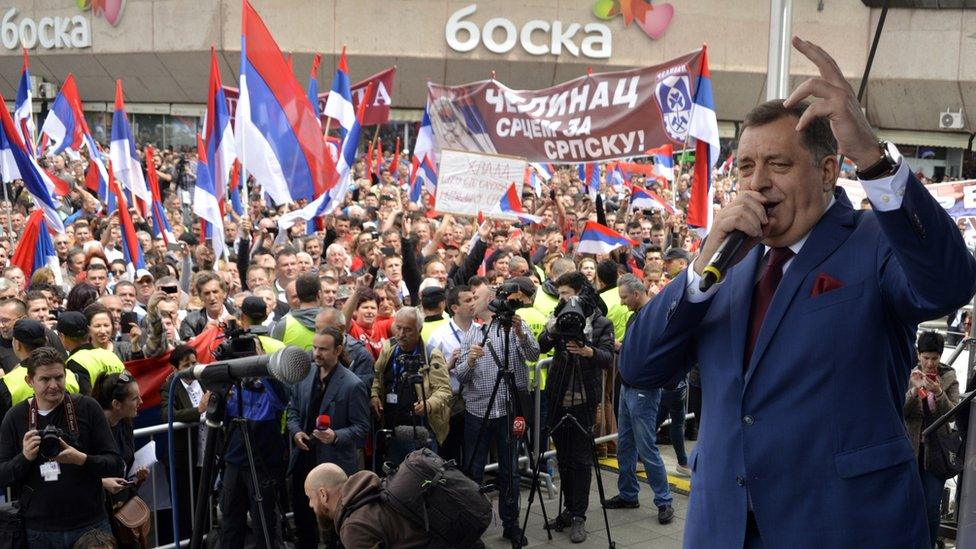
Milorad Dodik taps into continuing Bosnian Serb grievances about the peace settlement
To outsiders, Sunday's Bosnian Serb referendum in Republika Srpska (RS) might seem like much ado about nothing. It is, on the face of it, just a plebiscite about the date of a public holiday.
But even before it is held, the vote has increased tensions in Bosnia-Hercegovina, prompted threat and counter-threat about military action and given Russia an opportunity to interfere.
Above all, the peace accord which has kept a lid on conflict for more than two decades is facing its sternest test in many years. The rhetoric is frightening to many citizens.
The former leader of the Bosnian army, Sefer Halilovic, implied that the RS might come under military attack if it held the referendum. In response, Serbia's Foreign Minister Ivica Dacic promised to protect ethnic Serbs. Considering Bosnia's recent history, it was a troubling exchange.
"Referendums in the former Yugoslavia have on many occasions led to some very negative consequences - so we have to take this event seriously," says Christopher Bennett, a long-time Sarajevo resident and author of Bosnia's Paralysed Peace.
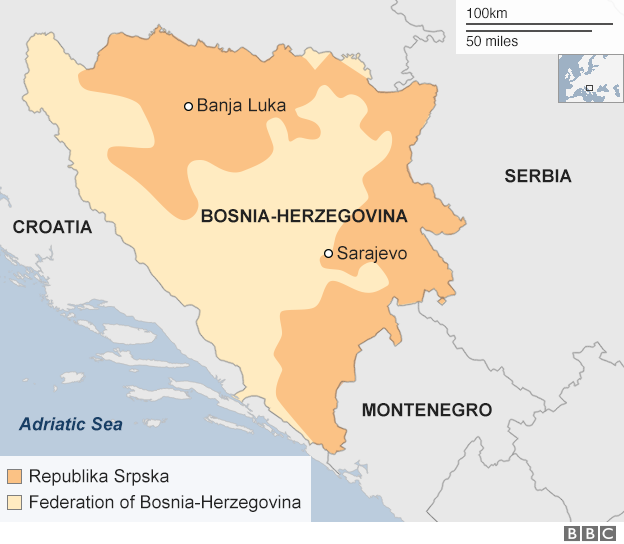
Bosnia's biggest foreign investment: Bonanza or threat?
The Dayton Agreement ended Bosnia's ruinous civil war in 1995 - but the solution created problems of its own.
It split the country into two so-called "ethnic entities". The population of the RS is mainly ethnic Serb.
The Federation is shared largely by Bosniaks, who are mostly Muslim, and ethnic Croats. A federal government is supposed to provide national leadership.
This set-up succeeded to an extent in defusing tension. But it also created fertile ground for unscrupulous politicians to play up ethnic differences for the sake of personal gain.
Symbolic date
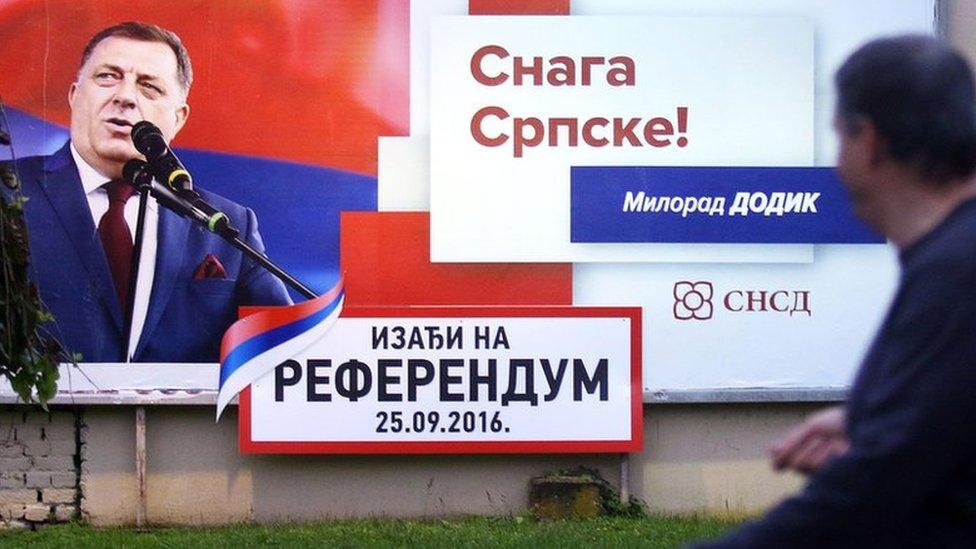
Banja Luka: A referendum poster proclaims "The Power of Srpska!"
In recent years, RS President Milorad Dodik has reaped the benefits more than most. He has consistently challenged national institutions, promoted a siege mentality among his electorate and repeatedly raised the possibility of secession.
His insistence on celebrating "Republika Srpska Day" on 9 January - and putting the matter to a public vote - is deliberately provocative. It is not only an Orthodox Christian feast day - but also the date Republika Srpska was founded in 1992, an event which was among the triggers for more than three years of ethnic violence and forced evictions.
The national court has already ruled RS Day unconstitutional - and banned the referendum. But this has just played into Mr Dodik's hands.
If ethnic Serbs in the RS feel the world is against them, they are more likely to vote his way - not just in the referendum but in local elections next weekend.
Nationalist defiance
Christopher Bennett says Mr Dodik is enjoying the opportunity to flout the authority of Bosnia's fragile federal institutions - but it is a potentially dangerous move.
"He is actually taking steps against the Constitutional Court - which is a fundamental element of the peace agreement which ended the Bosnian war 21 years ago. Sefer Halilovic said that if Milorad Dodik goes ahead with this policy, then he is effectively tearing up the Dayton Peace Agreement."
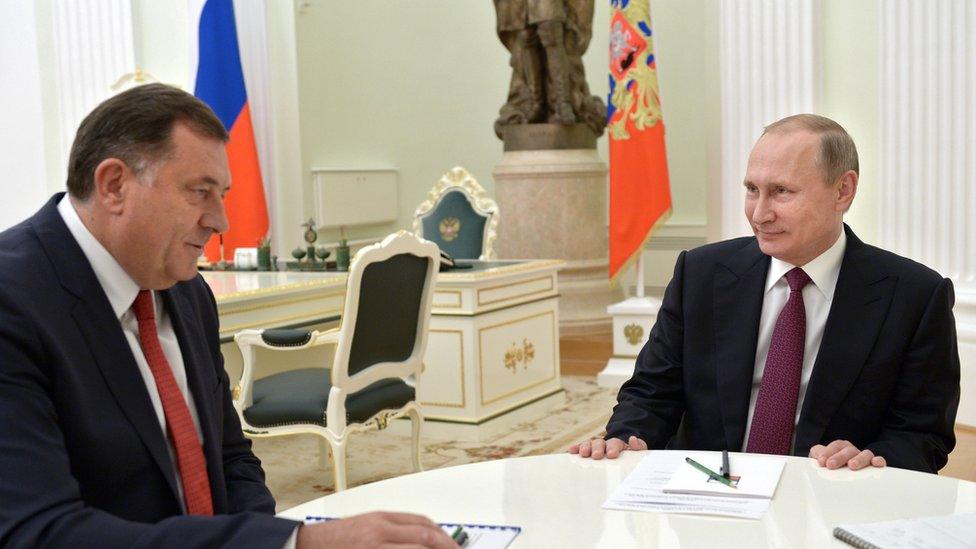
Mr Dodik had talks with President Putin (right) in the Kremlin on 22 September
In February, Serbia and the EU pressured Mr Dodik into abandoning a referendum on recognition of the national court.
But this time, he is defying Serbia - and enjoying the support of Russia, which has leapt at the chance to discomfit the Western powers, which usually see Bosnia as their domain.
About 600 international troops are deployed in Bosnia-Herzegovina, under EU command, external, and reserves can be sent in at short notice.
Russian support
Russia has defended the right of the RS to hold a referendum - and President Vladimir Putin even hosted Mr Dodik in Moscow just three days before the vote. The RS president said he took the opportunity to air his grievances.
"I pointed to the fact that in Bosnia-Herzegovina, 20 years later, with the High Representative and the Constitutional Court there are still foreigners who predominantly make decisions."
And indeed, the High Representative is the figure with the power to bring Mr Dodik's games to an end. Under Dayton, the Office of the High Representative (OHR) may dismiss any politicians who jeopardise the peace.
Those powers were used scores of times in the first decade after the conflict. The OHR removed the president of the RS in 1999 and on two occasions sacked the ethnic Croat member of the Bosnian presidency, in 2001 and 2005.
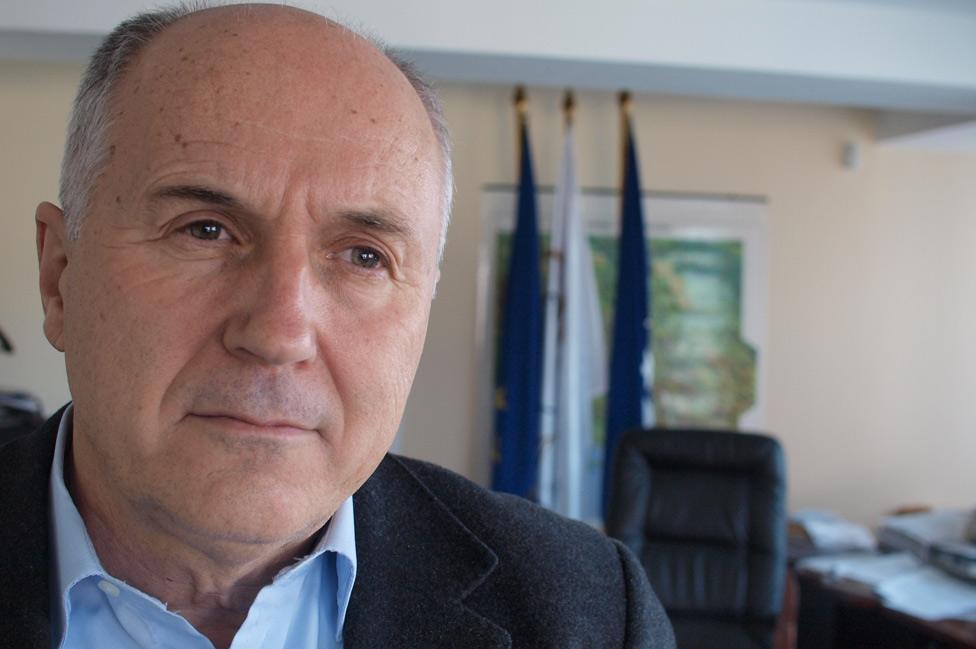
International High Representative Valentin Inzko has the power to sack local officials
But the current HR, Austrian diplomat Valentin Inzko, has been reluctant to impose punishments. This hands-off approach was supposed to provide space for Bosnia's institutions to mature and strengthen. But Mr Inzko said recent events may force a rethink.
"We are watching the situation closely - and the international community has the means to ensure that the peace is respected. A significant line has been crossed: the RS is acting against a direct order of the constitutional court - a clear breach of the rule of law.
"We need to be clear that this is not a secession referendum. But I hope it is a wake-up call to the international community. In order to ensure we do not get to that point, we need to take a stronger line against those who advocate for division."
'Citizens are smarter'
Some influential Bosnian voices have also been working to restore calm, after a week of unsettling rhetoric.
A Bosniak veterans' association called the remarks of their former general Sefer Halilovic "outrageous". And the ethnic Serb member of the Bosnian presidency, Mladen Ivanic, said, "There will be no war - because citizens are much smarter than the leaders they elect."
Still, it would be a surprise if Sunday's vote went against Milorad Dodik. And victory may embolden him to press ahead with his long-stated aim of holding a secession referendum by 2018.
The waters should be smoother after local elections on 2 October. But plain sailing remains a distant dream.